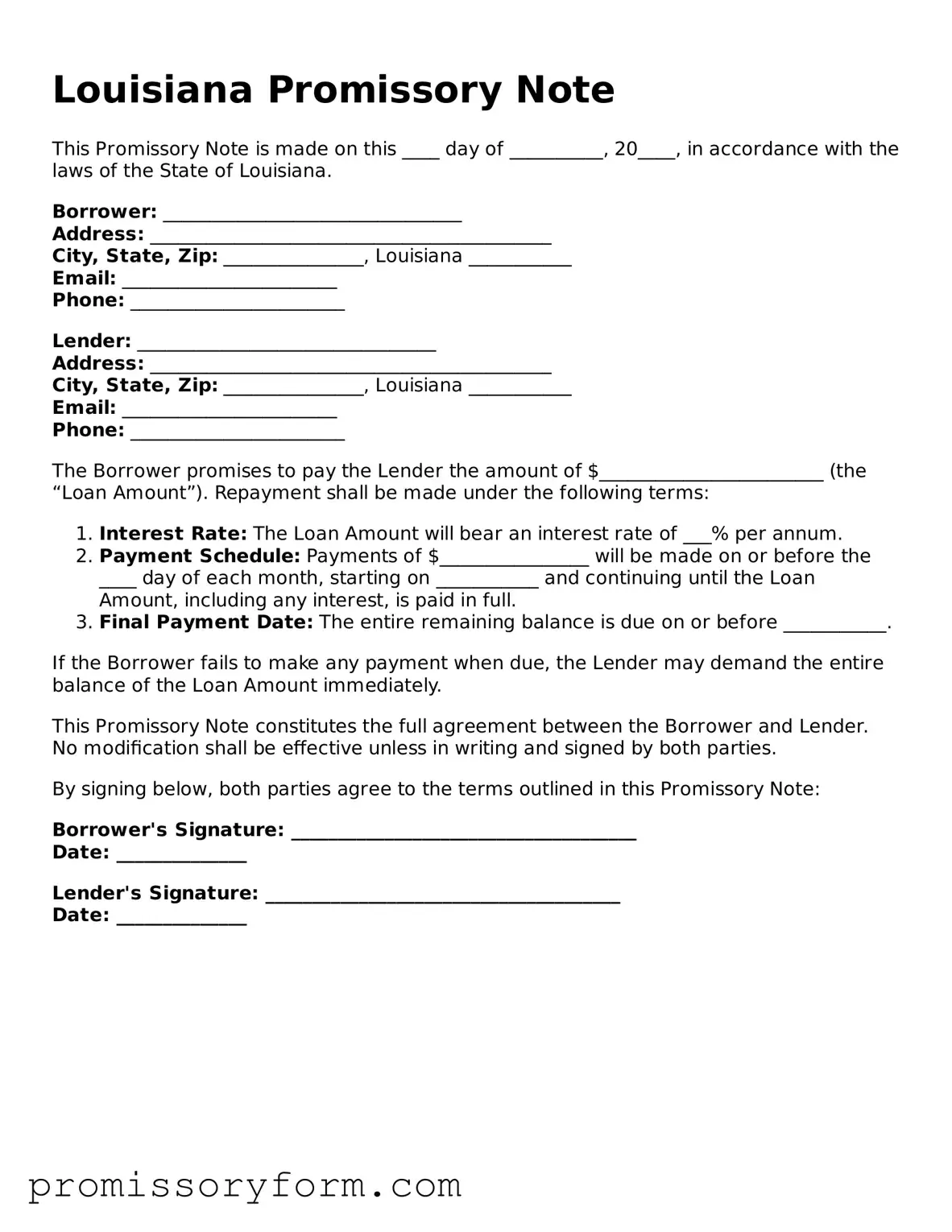Key takeaways
When filling out and using the Louisiana Promissory Note form, keep these key takeaways in mind:
- Clear Identification: Clearly identify the borrower and lender. Include full names and addresses to avoid any confusion later.
- Loan Amount: Specify the exact amount being borrowed. This figure should be precise to prevent disputes over the loan's terms.
- Interest Rate: Clearly state the interest rate, if applicable. This should be expressed as an annual percentage to ensure transparency.
- Payment Terms: Outline the repayment schedule. Indicate when payments are due and the frequency (e.g., monthly, quarterly) to keep both parties on the same page.
- Signatures: Ensure that both parties sign the document. This step is crucial for the note to be legally binding.
Taking these steps will help ensure that your Louisiana Promissory Note is complete and enforceable.
